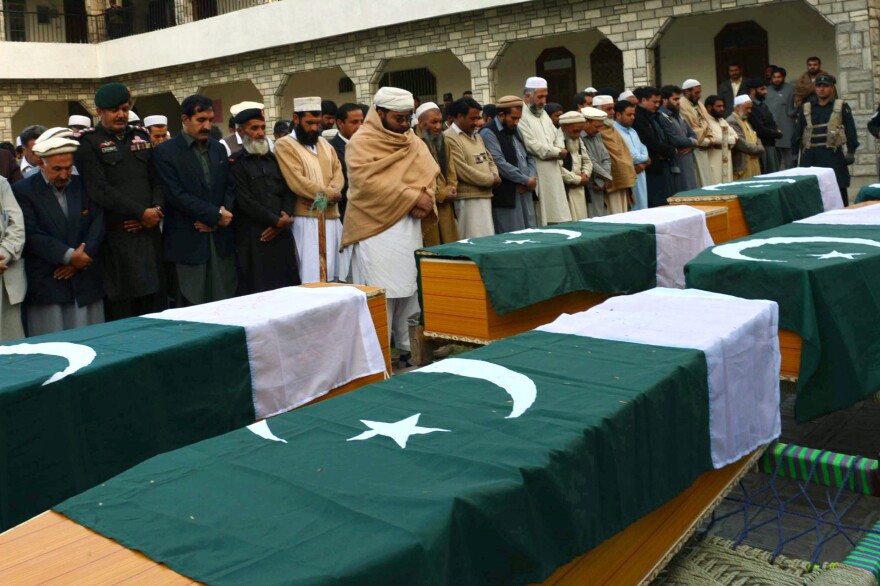Pakistan is currently at the center of the global effort to eradicate polio. Although the country has reported only about a hundred cases this year, that's more cases than in all other nations combined.
Eliminating the paralyzing disease is a major logistical operation in Pakistan. More than 200,000 vaccinators fan out across the country, several times a year, to inoculate millions of children. The government also deploys tens of thousands of armed security forces to guard the workers.

All this is happening while Pakistan is fighting against the Taliban — and that militant group continues to threaten polio vaccinators and parents who immunize their children.
The polio campaign is costing Pakistani lives, national pride and precious health resources. Some health leaders are starting to question whether the focus on polio is worth it.
"All the immunization workers have been redirected into the polio campaign, which has resulted in another disaster: Our routine immunization has gone down to as low as 30 percent or less," says Dr. Raza Jamal, of the National Institute of Child Health in Karachi. "So that has resulted in epidemics of measles, diphtheria, cases of pertussis — which we had stopped seeing for a long time."
Jamal supports the polio eradication effort. But, he says, it has become a national obsession and has taken a huge toll on Pakistan's already overstretched health system.

Polio is only one of many challenges facing the poor country. People lack access to jobs, sanitation, decent housing, clean water and electricity. Criminal gangs terrorize the slums of Karachi. Pakistan has a major terrorism problem.
Last month, militants in suicide vests fought a five-hour gunbattle with security forces at the Karachi airport, which left 38 people dead. On the same day, 22 Shiite pilgrims were attacked and killed near the Iranian border.
Amid all this, Western health officials have pushed polio to the front of the country's national agenda.
Mazhar Nisar coordinates anti-polio campaigns for the Pakistani Ministry of Health, but even he thinks the constant drumbeat on polio can be a problem. "There is a serious fatigue factor in the parents," he says. "There is a serious fatigue factor among the providers."
Coordinating the mass immunization drives all across the country is a major logistical operation for the health department. And parents have started to question why the government is directing so much attention to this one disease, Nisar says.
"They [parents] said, 'When we go to the hospital, we don't get the medicines. We don't get the proper treatment. My child is dying of diarrhea. My child has measles. And yet every four or six weeks, you come with the polio vaccine,' " he says.
But being one of the last nations on Earth with polio — even if it's just a hundred cases — is an embarrassment for the government.
"There are people at the highest level [of the government] who've told me they start their day with polio, they end their day with polio, as if this is the only priority," says Zulfiqar Bhutta, a professor of pediatrics at the Aga Khan University in Karachi. Bhutta has worked on polio for decades.
Polio eradication is very important, he says. But it's unclear how long Pakistan can stay focused on mass immunization drives. "What we need to go and try to do is something a bit more holistic," he says, "rather than trying to focus on a single intervention and a single program that bears very little relevance to the lives and livelihoods of people."
Pakistan should work to improve its basic health services, Bhutta says, so kids get immunized for polio along with everything else; and sanitation should be upgraded so the polio virus can't contaminate drinking water.
But projects like those take even more time — and more resources — than the current barrage of polio immunization campaigns.
Copyright 2021 NPR. To see more, visit https://www.npr.org. 9(MDIwNjQ2MTYzMDE0NDM1NTQ0OThlYjEzMg001))



